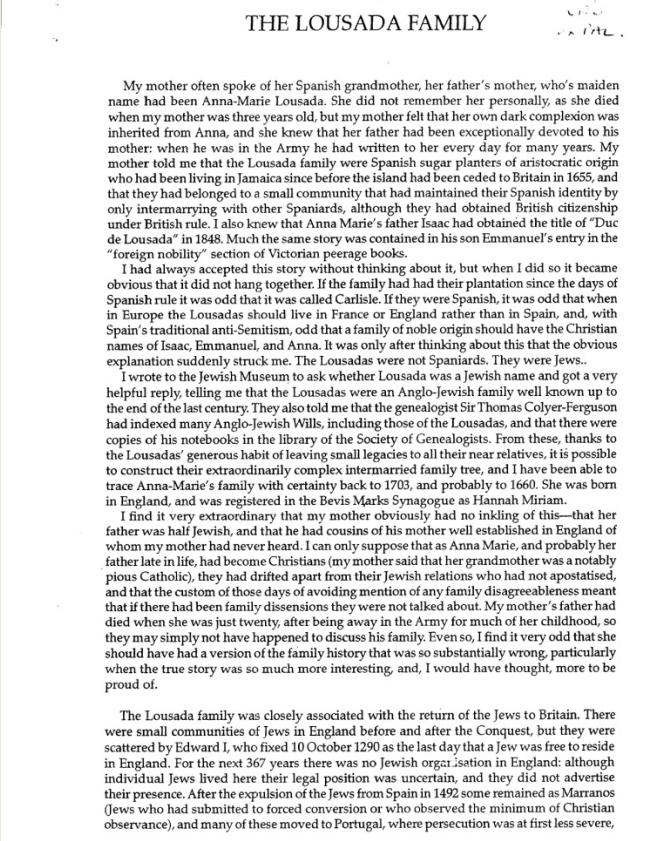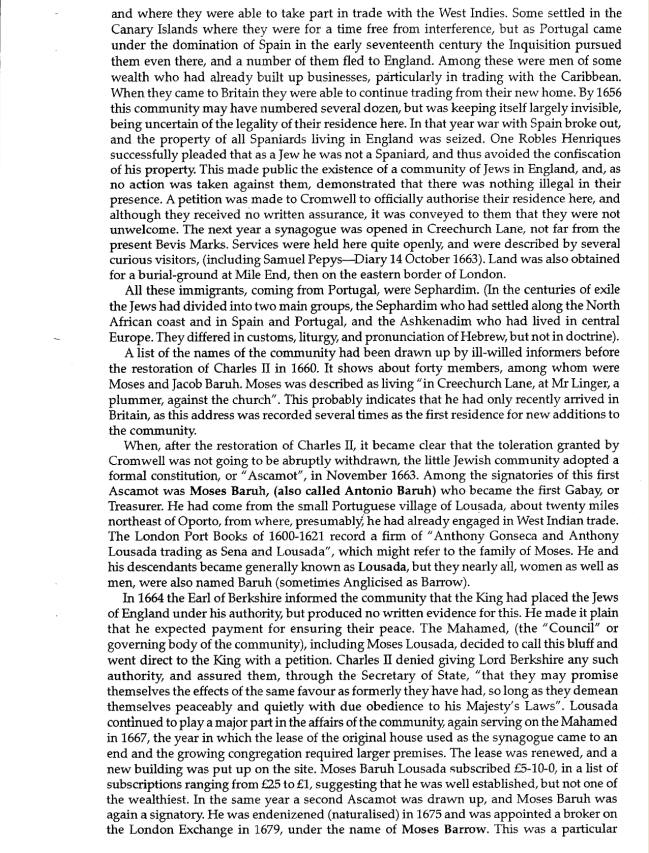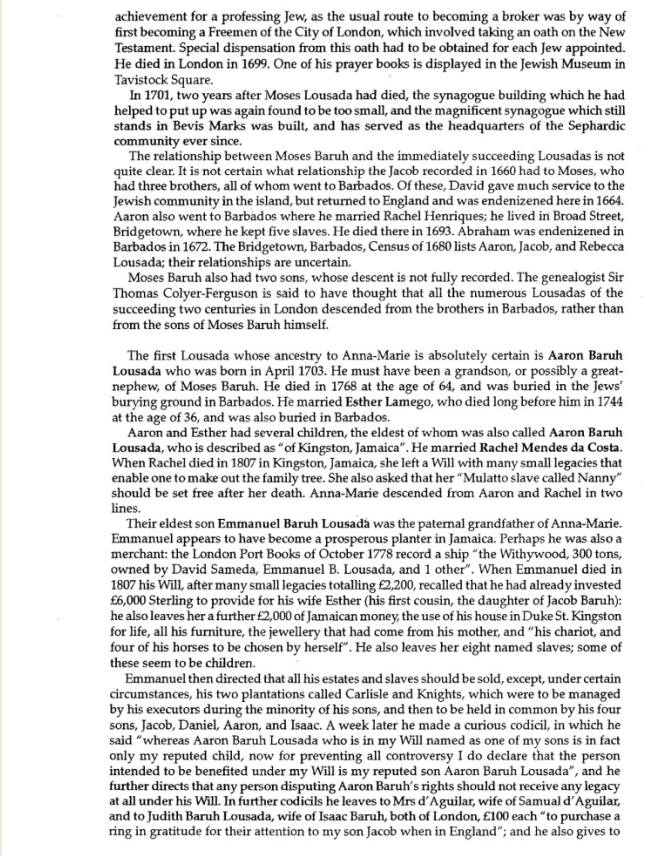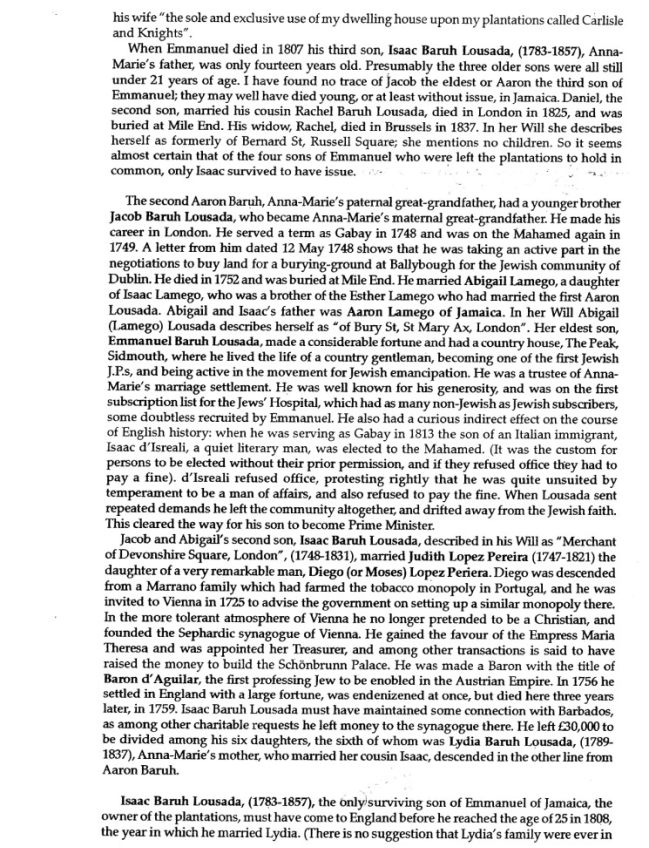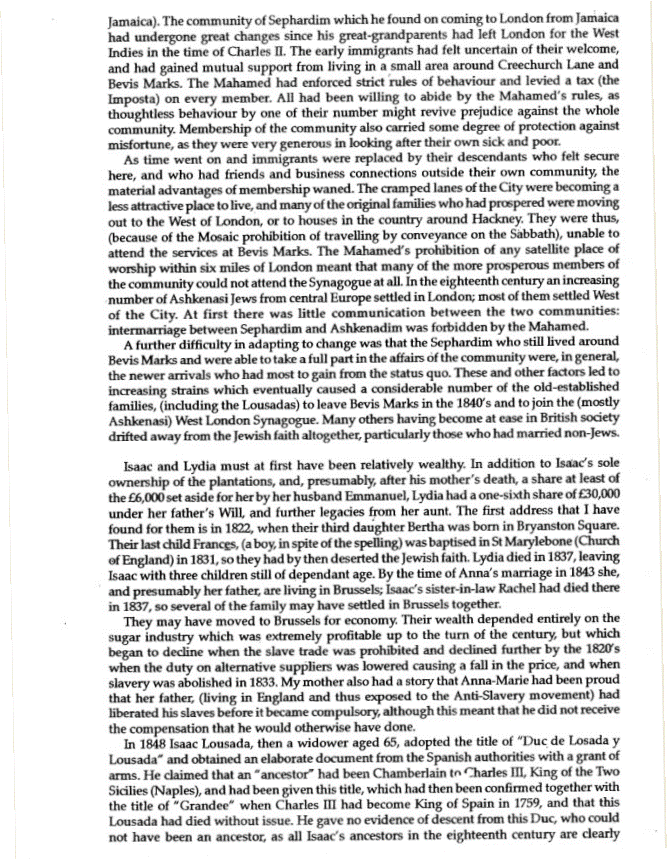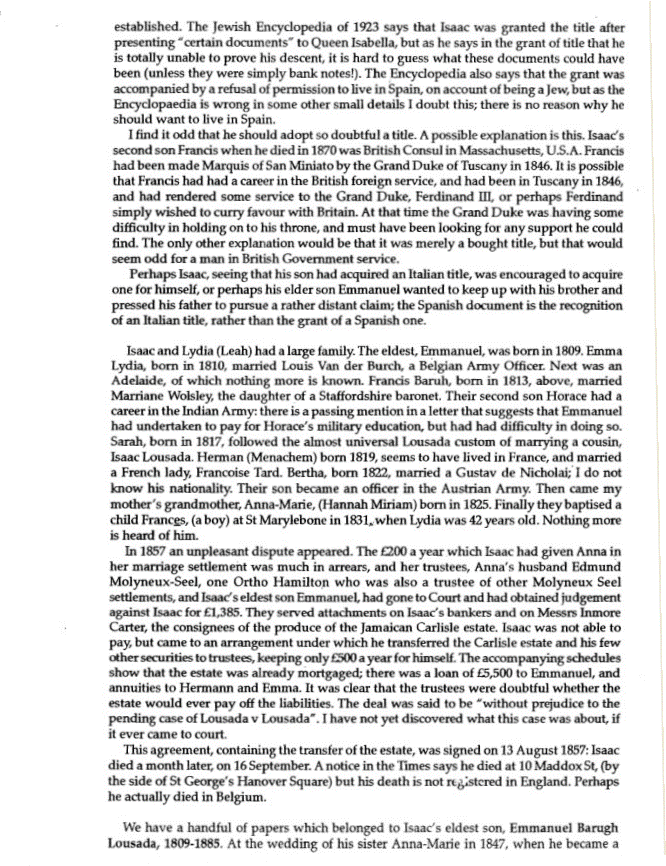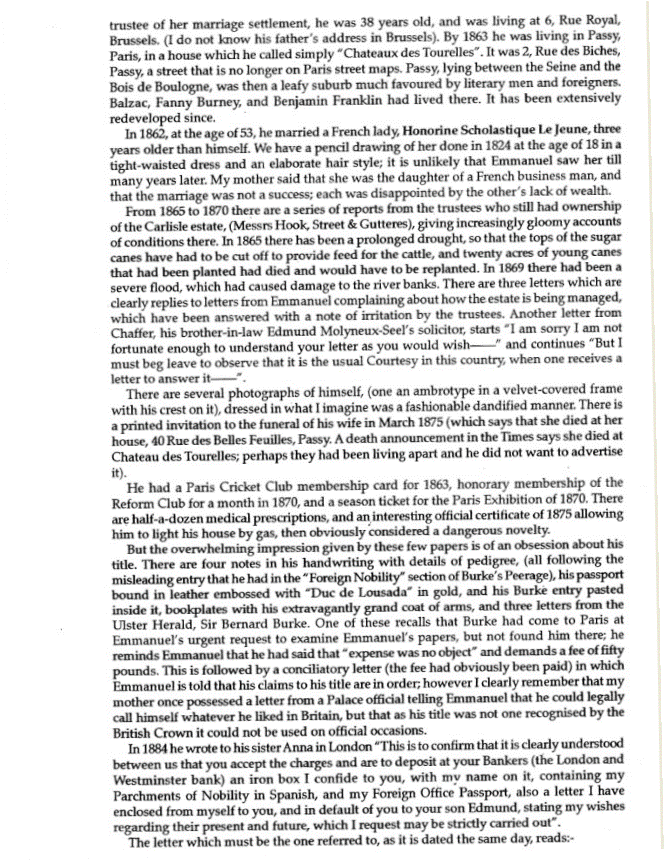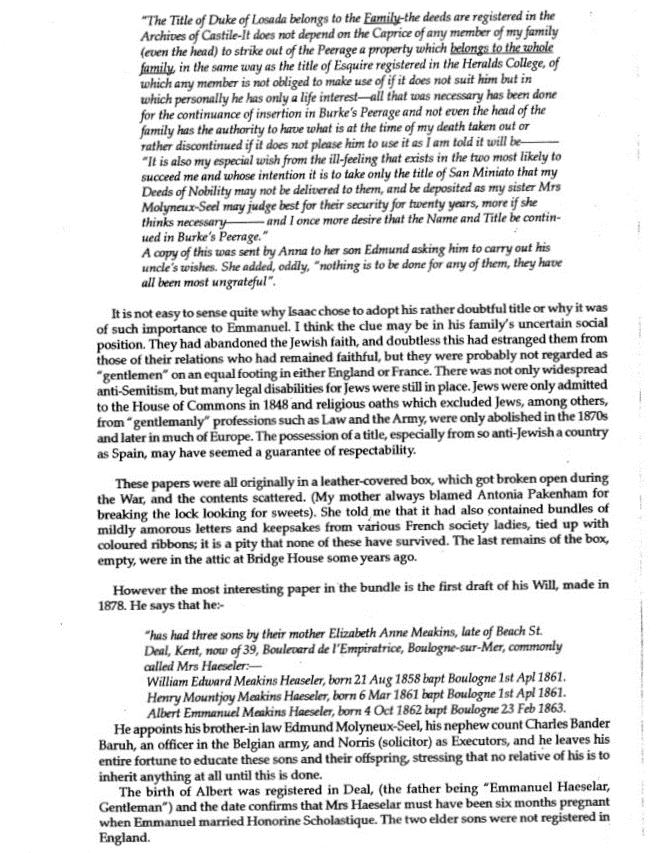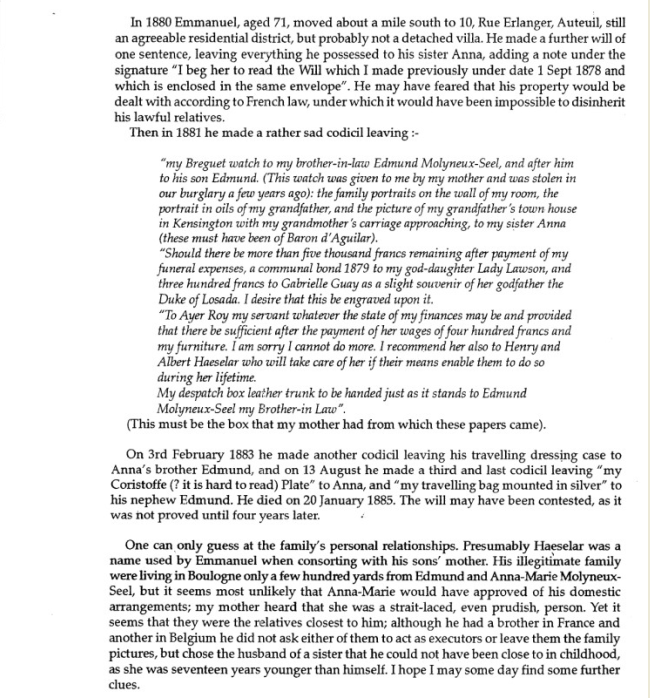NOTES ON THE
FAMILY OF
THE LOUSADA DUKES
By a
great-great-grand-daughter of
Isaac the
first Lousada Duke
These notes offer a remarkable and moving
insight into this branch of the family.
We have tentatively
identified the author as a daughter of Vera Margaret Sandars nee
Molyneux-Seel 1903-95 who was born 5 years
after Anna-Marie Lousada 1826-98 died (not the 3
years in the 2nd sentence
below). We give an account of her family
history in
ref 230. Our work has shown
that quite a
few errors have crept into traditional family accounts -
and some are evident here; for
instance, in the the first line it can be seen
that the author's mother thought the Lousadas
were Spanish (they were more Portuguese than
they were Spanish) and she includes
an
oft-repeated error in which one of the
3 Aarons
who were grandsons of the Barbados magnate Aaron
Baruch Louzada
and who all died in 1768 is
confused with Isaac's
great-grandfather Emanuel #41 (who was born in
1682 and was father of one of the 3 Aarons) and to whom is
thus given the wrong name and to his wife Esther Lamego the wrong life history!
She also gets the date of death of the original
Barbados Aaron wrong - it was 1695 while the date
she gives ie 1693 is the date of his will.
The author completely misses the
Amsterdam,
Curacao,
Surinam
and Livorno
dimensions of the Lousada story
and thus fails to understand why the family
dispersed as it did in the wake of the loss of
Dutch Brazil, and the central role of Moses'
'brother' David of Barbados and Amsterdam
(who was the step-father of the Barbados Jacob
referred to in the text below and a cousin
of the London Moses). Though
she avoids making the error made in some of our
family trees which have
Moses Baruh
Lousada as the family head, when she asserts that Moses came
from Lousada in Portugal she makes a further
error in that the Lousadas were in Vinhais and
Villaflor
after they were in Lousada; that is, Moses could not
have come from Lousada but was born
somewhere after the family's period in
those latter 2 towns in northern Portugal and
perhaps he was born in Madrid. Though she
correctly accepts Barbados as the origin of most
of the Jamaican and English Lousadas, she fails to realize that
there were indeed ancestors in Jamaica before 1655 but
they were the
Lamegos or rather their
Curiel in-laws. The author
states that Isaac's father Emanuel died in 1807
when Isaac was 14, but the death was in 1797. T
